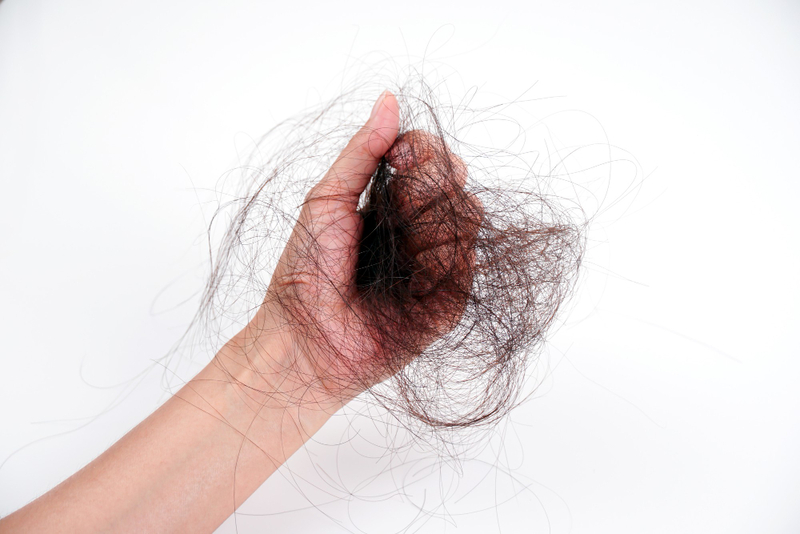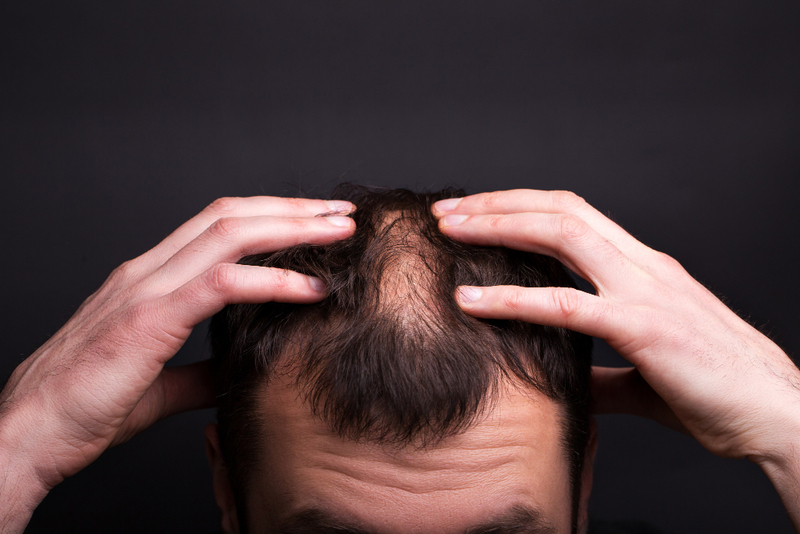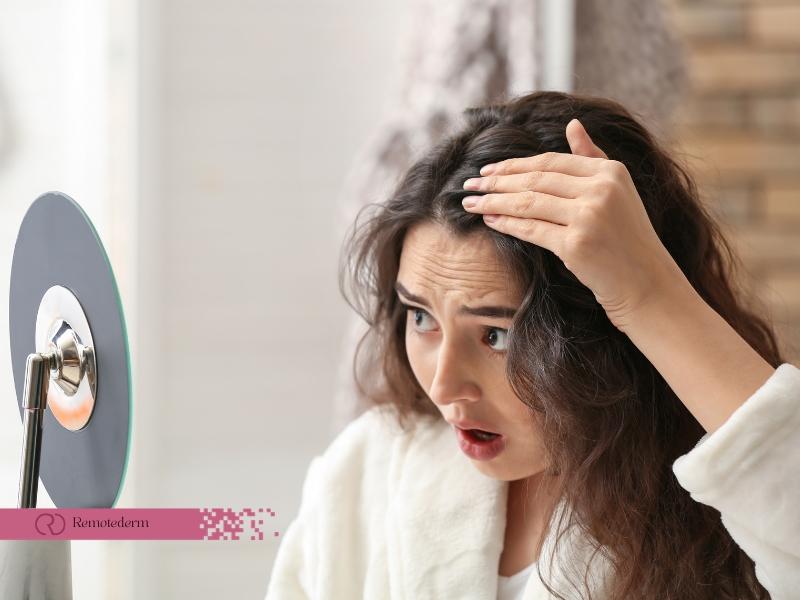In a world where stress is inevitable, its impact on our well-being is a growing concern in Canada. One aspect often overlooked is the connection between hair loss and stress. This article unravels how stress can lead to hair loss, shedding light on this intricate relationship and offering insights into managing its effects.
Understanding the Physiology of Hair Growth
Before delving into the stress-hair loss connection, it’s crucial to grasp the basics of hair growth. Each hair on our scalp goes through a growth cycle, rest, and shedding. Stress disrupts this cycle by pushing a significant number of hair follicles into the resting phase, known as telogen effluvium.
The Impact of Stress on Hair Loss
Psychological stressors can act as catalysts for hair loss, a phenomenon that remains invisible until the physical signs become apparent. This section dives into the biological responses to stress that lead to hair loss and highlights the ways our hair serves as a measure for internal stress levels.
1. Cortisol Overload and Hair Follicles
Cortisol, also referred to as the stress hormone, is one of the main actors in the stress-hair loss dynamic. Our bodies can suffer greatly from high cortisol levels, and hair follicles are no exception. Prolonged stress causes an excess of cortisol, which pushes hair follicles into the telogen phase too soon.
2. Alopecia: Stress’s Silent Manifestation
Alopecia, a condition characterized by hair loss, often finds its roots in stress. Stress-induced alopecia can manifest in various forms, with one of the most prevalent being alopecia areata. This autoimmune condition results in the body attacking its hair follicles, triggered by stress.
Unraveling the Stress and Hair Loss Statistics
The statistics surrounding stress-induced hair loss are eye-opening. Recent studies suggest that over 40% of individuals experiencing significant stress report noticeable hair loss. This highlights the urgency of addressing stress management for mental health and maintaining a full and healthy head of hair.

Debunking Myths: Is It Reversible?
It’s essential to clarify that hair loss and stress can be daunting, but the situation is not beyond repair in Canada. With a comprehensive understanding of the reversible nature of this condition, individuals can take a proactive approach to restoring their hair’s vitality.
Moreover, debunking common misconceptions about stress-related hair loss informs our efforts toward recovery, allowing us to approach the issue with scientifically grounded optimism and practical lifestyle modifications.
1. The Temporary Nature of Stress-Induced Hair Loss
The good news is that in many cases, stress-induced hair loss is reversible. Once stress levels decrease and the body returns to a state of equilibrium, the affected hair follicles can re-enter the growth phase. This emphasizes the importance of effective stress management strategies.
2. The Role of a Balanced Lifestyle
In the quest to combat stress-related hair loss, adopting a holistic approach is paramount. A balanced lifestyle that incorporates regular exercise, a nutritious diet, and sufficient sleep mitigates stress and promotes overall well-being, positively influencing hair health.
Stress and Alopecia: A Multifaceted Relationship
Stress triggers a complex interplay within the body, exacerbating alopecia by influencing hair follicles and altering growth cycles. As cortisol surges, it disrupts hormonal balance, prompting hair to prematurely enter the resting phase, increasing shedding and thinning, and underscoring the importance of holistic stress management in hair health.
Online hair loss dermatology platforms stand at the forefront of this exploration, employing digital tools to offer personalized care and advanced treatment options. By harnessing the power of telemedicine, specialists can now extend their reach, providing guidance and interventions to patients contending with the distressing effects of stress-induced hair loss right in the comfort of their own homes.

The Impact of Chronic Stress on Hair Follicles
Continuous exposure to stress can lead to biological responses that compound over time, causing potentially lasting impacts on hair growth patterns. This section will illuminate how sustained stress levels can accelerate the progression of hair thinning and loss.
1. Prolonged Stress and Miniaturization
Chronic stress poses a greater risk to hair health, leading to a process known as miniaturization. In this scenario, hair follicles shrink in size, resulting in finer and shorter hair strands. If left unaddressed, this can escalate to more severe forms of hair loss.
2. Telogen Effluvium: A Common Consequence
Telogen effluvium, triggered by chronic stress, is a common cause of diffuse hair loss. Identifying and addressing the underlying stressors is crucial for preventing the prolonged activation of telogen effluvium and promoting healthy hair regrowth.
Final Thoughts
In conclusion, the intricate link between hair loss and stress in Canada cannot be ignored. Acknowledging this connection is the first step toward managing stress and maintaining healthy hair. By adopting a holistic approach, including lifestyle adjustments and stress reduction techniques, individuals can address stress-induced hair loss and enhance their well-being. A healthy mind and body contribute to a vibrant, resilient hair crown.
FAQs
1. Can sudden, short-term stress also trigger hair loss, or is it only chronic stress?
Even acute, short-term stress can lead to a temporary condition of hair shedding known as acute telogen effluvium, leading to hair loss.
2. Are there particular stress-reducing activities that are most effective for preventing hair loss?
Activities like mindfulness meditation, yoga, and regular physical exercise have been scientifically shown to reduce stress levels.
3. How does stress affect hair texture and quality, apart from causing hair loss?
Stress can negatively impact the hair’s lifecycle, potentially leading to changes in hair texture, such as brittleness or dryness. Over time, this can result in weaker strands that break easily.
4. Does managing stress guarantee the reversal of hair loss, or are other factors at play?
While managing stress is crucial, it doesn’t guarantee the reversal of hair loss as genetic factors, nutritional deficiencies, and hormonal imbalances also play a significant role.
